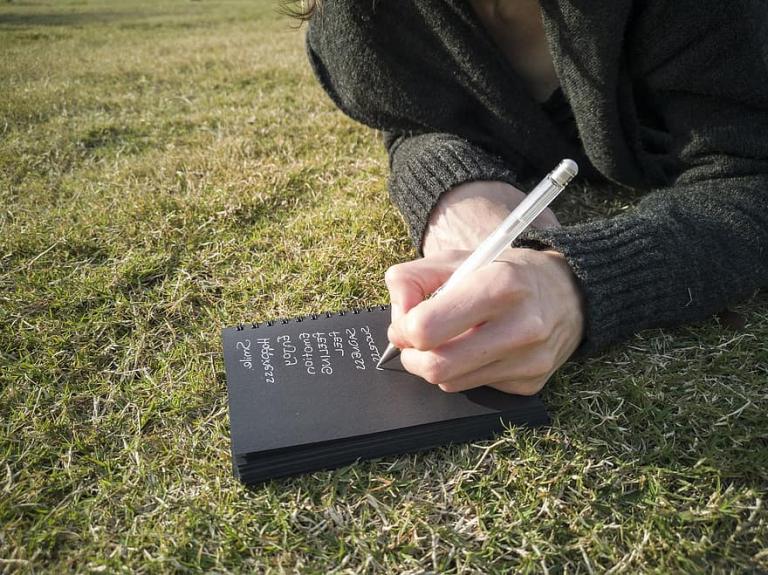At the reading group of church workers that I belong to, we read and discussed the introductory material to the Commentary on Psalms 1-50 by Timothy Saleska, a professor at Concordia Seminary in St. Louis. (The third volume on the book, covering Psalms 101-150, is being prepared by my son-in-law Adam Hensley, a professor at the Lutheran Seminary in Adelaide, Australia.)
Dr. Saleska’s introduction to the Psalms is a wonderful piece of work, explaining how to read the Psalms, describing how the Psalms have historically been understood and used by the church, and surveying the vast and rich scholarship on the Psalms.
What I especially appreciated, literature teacher that I am, is his elucidation of poetry and how to read the Hebraic poetry of the Bible, the supreme example of which are the Psalms.
He begins by relating poetry to God Himself.
Our word for “poetry” and all of its related terms derives from poieo (ποιέω), the Greek word for “to make.” Indeed, the Greek word for “poet” is poietes (ποιητής). Thus, the classical conception of a poet is a “maker,” someone who makes with words.
By that definition, God is a poet. He made the universe with words. “And God said, ‘let there be light,’ and there was light” (Genesis 1:3), and so on through all of His acts of creation. “By the word of the Lord the heavens were made” (Psalm 33:6). “In the beginning was the Word, and the Word was with God, and the Word was God. He was in the beginning with God. All things were made through him, and without him was not any thing made that was made” (John 1:1-3).
Indeed, as Dr. Saleska points out, when the creeds say, “I believe in God, the Father Almighty, maker of heaven and earth,” the word for “maker” in the original Greek of the Nicene Creed is poieten (ποιητὴν). This is the same Greek word for “poet.”
So, as Dr. Saleska says, we could say, “I believe in God, the Father Almighty, the Poet of heaven and earth.” Not that His creation or the first chapters of Genesis are poetry. “Maker” can be used for any kind of making, whether with words or physical material. But, as Dr. Saleska quotes German theologian Oswald Bayer, “the title of ‘poet’ is most appropriate to characterize explicitly this linguistic nature of God’s omnipotence, his creativity.” God created (another artistic term) by means of His Word. “In this sense of the word ‘creativity,’ God is the first poet and creation is his ‘poem’–a work made by speaking. So YHWH is rightly called the author of all creation” (p. 1).
Contemplating all of this made me realize that if God is a poet and creation is His poem, then we need to “read” creation accordingly. Like poetry, the physical universe has form. It has beauty. It has rhythms, repetitions, structures, and interconnections.
Contrary to those who claim that reality has no meaning, reality–like a poem–has lots of meanings. But those meanings are not straightforward, like those of expository prose. Rather, the meaning of reality, like a poem, can be multilayered, complex, ambiguous, and open to multiple interpretations.
But it remains an expression of its Maker that stimulates and rewards our contemplation, whether that of a scientist or an artist or an ordinary person who is also part of His creation.
Photo via Pikist, Public Domain












